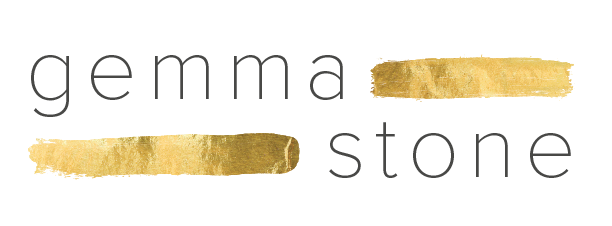Ego gets a bad rap.
I’m hearing more and more disparaging chatter about the ego – let go of ego, transcend the ego, fight the ego, destroy the ego, bad ego bad!
We can’t get rid of the ego; it’s as necessary for life as breathe.
The problem is not that we have an ego, it’s that we allow the unhealthy parts of the ego to take over and rule our lives.
We are born without an ego. Being born without an ego allows us to feel oneness with our mamas and allows us to survive during those extremely vulnerable early days.
Over time, we develop a social self {ego}. We develop an ego because we are wired for love – that big mysterious collection of cells in our skulls is an relationship organ.
Ideally, as we grow up we form a healthy secure attachment {bond}. A healthy attachment feels oh so good – like being wrapped up in a safe, secure, warm fuzzy blanket.
If, during our young lives, we develop a secure attachment and we have lots of positive experiences we develop a healthy ego.
A healthy ego allows us to grow up with a loving sense of self, rock solid resiliency, the ability to solve problems creatively, the capacity to develop meaningful relationships, and a sense of meaning.
If, during our young lives, we are slammed into trauma or didn’t get what we needed, our ego can be hurt. If we don’t have the opportunity to heal in a healthy way the wounded ego learns to compensate and protect the painful bits in defensive, reactive, and dysfunctional ways.
An unhealthy ego is like a shield, protecting us from the outside world, but also preventing us from loving ourselves and our lives.
An unhealthy ego will tell you to stick to what’s comfortable, to avoid uncertainty, and to have unrealistic expectations of yourself and others. Unhealthy ego is rooted in fear, anxiety, limiting beliefs, and toxic thinking patterns.
Here’s are a few things an unhealthy ego does,
- feels not good enough
- uses anger to control other people
- uses substances to comfort, avoid, numb, escape or distract from uncomfortable feelings
- is reactive, dramatic, defensive or easily triggered
- repeats problematic behaviors that cause suffering
- fights reality or wishes it away
- refuses to face fear and challenges
- believes that happiness only occurs when there’s no emotional pain or fear
- often feels overwhelmed by emotions
- expects perfection
- personalizes what others say and do
- uses blame, avoidance, criticism or denial to deal with difficult situations
- feels a sense of entitlement or grandiosity
- requires a lot of emotional validation and feels angry, anxious or depressed if it’s not available
- is unable to demonstrate compassion or understanding towards people who hold different opinions or beliefs
- feels a sense of competition with others
- feels jealous or judgmental of other people’s success
- avoids making apologies and taking responsibility
- needs to be right and feel superior
- is chameleon-like; changing to fit in or fulfill a role
These are the masks we wear to protect ourselves.
An unhealthy ego may wear some of these masks or all of them.
Before your mind spirals into a pit as you read this list and recognize some of these signs in yourself, or someone your love, let’s wrap you {or them} up in a cocoon of compassion.
I’ve never met anyone with a perfectly healthy ego.
Trauma is part of the gig of being human.
We can’t escape it, but we can work to heal it.
Now, let’s wander down to the other end of the egoic spectrum and explore the healthy ego.
When we have a healthy ego it’s easier to move through life with a wide-open heart, healthy boundaries and a solid sense of self. A healthy ego is essential for happiness, fulfillment, and resilience.
Here’s how a healthy ego shows up,
- reflective, responsive, and resourceful
- thinks in terms of possibilities
- turns to healthy coping mechanisms during times of stress
- optimistic and grateful
- can understand, appreciate, and validate perspectives that are different
- strong sense of capability and security
- constantly growing in strength, confidence, and ability to handle triggering situations
- can tolerate discomfort and regulate emotions
- curious
- does not personalize what others say or do; maintains a healthy perspective
- embraces the imperfections of self, others and life
- takes ownership of problems; let’s other people be responsible for themselves
- understands the difference between wants and needs
- practices acceptance, compassion and cooperation
- acts with integrity and authenticity
- can discern between what can be changed and what can’t be
- has a strong sense of personal power
- is adaptive and flexible
- feels worthy and deserving of good things
- can give and receive love and appreciation
- is aware of interests, desires, and talents
When our ego is healthy we can navigate challenging moments in life, sit in vulnerability and not be overcome by fear, and develop healthy emotional connections to others.
Healthy ego allows us to genuinely appreciate our strengths, accept our imperfections, and love ourselves unconditionally.
A healthy ego is built on core beliefs that are based in love.
A unhealthy ego is built on core beliefs that are based in fear.
We cannot avoid, escape, destroy or transcend our ego.
We can heal early experiences, change fearful subconscious patterns, and redesign our lives.
Ego is doing its best to help us be whole and healthy humans.
It’s up to us to give ego what it needs in order to do its job in a loving way.
photo cred : LOVE installation by Alexandr Milov, Burning Man 2015.
